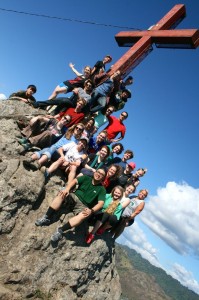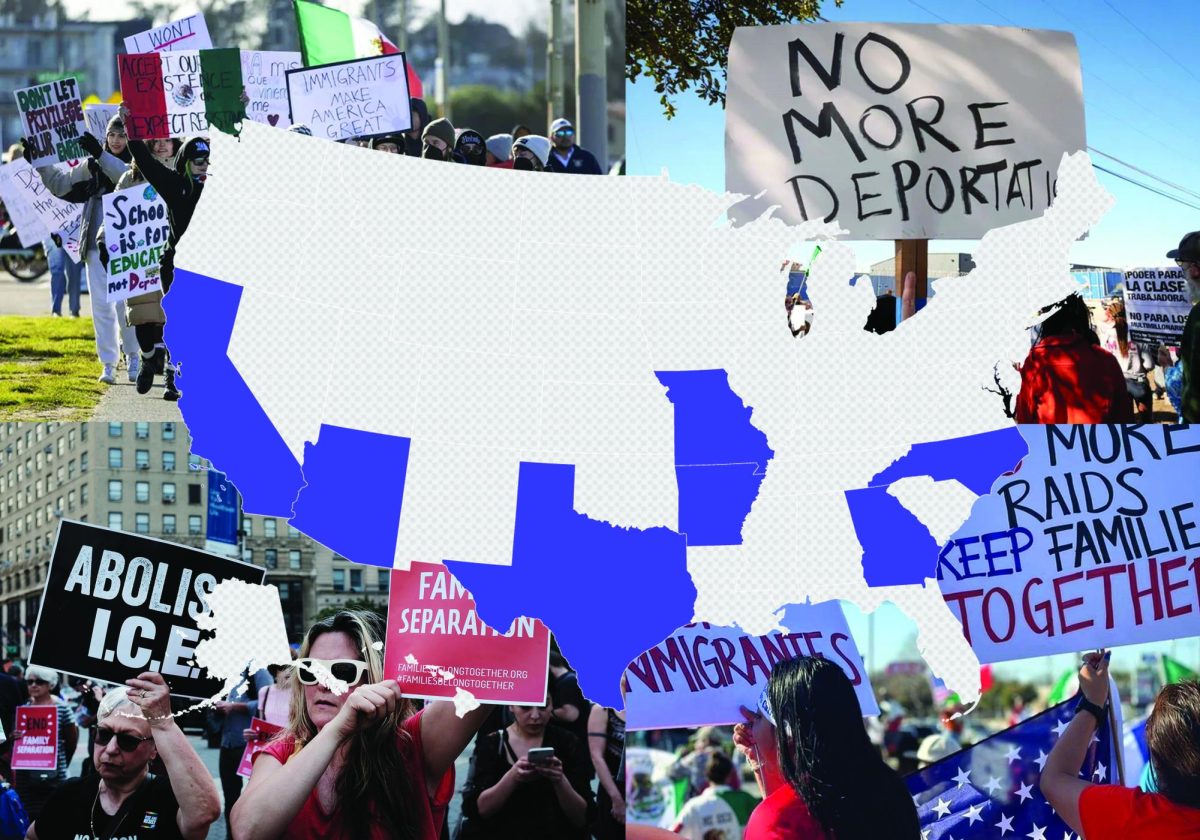The second half of the Brigade trip was Public Health. This involved working in a new place— the community of El Naranjo—where we would be putting down concrete floors, which reduces parasites in the home. The group was also in charge of constructing hygiene stations that reduces the miles long walk for washing, reduces ground pollution and increases bathing privacy, especially for women.

The owner of the home I worked in never stopped working beside us and enlisted other members of the community to help when they could. The families receiving the work participated every day with the students, talking to us through the work or helping us turn over concrete (it was all hand-mixed concrete). The masons were especially patient with our mistakes and the language barrier. We completed the house and hygiene station with extra time so after our very sweet and fun goodbye (there was a candy filled piñata for the local kids), we left the community of El Naranjo. We were able to have an outing in nearby Jinotega where we ate lunch at the local place that provided us with meals each day while we were working on site.
We were also able to purchase local coffee and hike together above a colorful graveyard to a cross.
Some of the Grinnellians reflected on the experiences they shared through the week. “Brigades is a great opportunity to learn where you truly stand in the world with respect to your perspective and privilege, which often ends up being different for everyone on the trip. It’s well worth the commitment,” Keaton Cameron-Burr, President of the Grinnell College chapter of Global Brigades said.
Cameron-Burr was an impressive driving force, as he was a translator, photographer, brigader and “fearless leader” throughout the trip. It was inspiring to see a student take so much initiative and keep a level head in times of stress.
“I personally had a great time in Nicaragua, not only working hard but meeting new people from in and out of Grinnell. I believe that our trip and the collection of funds for medical supply was possible because the students were able to actively participate in the project. I mean, who would willingly pay not knowing where the money will be used? This trip was valuable for me because with my own eyes, I got to see the “needs” of the people in small poor communities. I remember a moment in charla [educational children’s workshop], kids asked me for toothbrushes, but we had already gave them all out so I couldn’t give them any,” Daniel Lee, a third year Biology major said. “I had these first hand experiences that are precious and such experiences have planted potentials in me; there is a potential for me to attend more brigade programs and for me to send support to Nicaragua in the future. I believe unknown potential has been planted in other students as well. It might seem that our trip was inefficient [in using money], but I don’t think we can discuss the efficiency without fully realizing the potential.”
“Days in Nicaragua passed quickly and every new day brought new challenging experiences, new exciting events, and new evocative stories of people so different yet so much alike us. I came to Nicaragua expecting to partake in a meaningful journey, which would benefit both the local community as well as broaden my perspective by learning interesting facts about the country, culture, medicine, and public health,” Ana Karin Kozjek, a second year Biology major said.
Experiences like this are so amazing because they are led and run by the students, you make the trip what it is. I had a great experience learning not only about the country of Nicaragua or the people, but about what I’m capable of—that I can do my part and make a difference to the people I encounter. Each person took something different from the trip, whether it was a newfound love for rice and beans or a desire to continue impacting communities in need all over the world. We worked, we had fun and we made memories that changed our outlook on volunteerism efforts.
My hope is that students will read this and be inspired to find programs like this or support a UNH chapter of Global Brigades.



